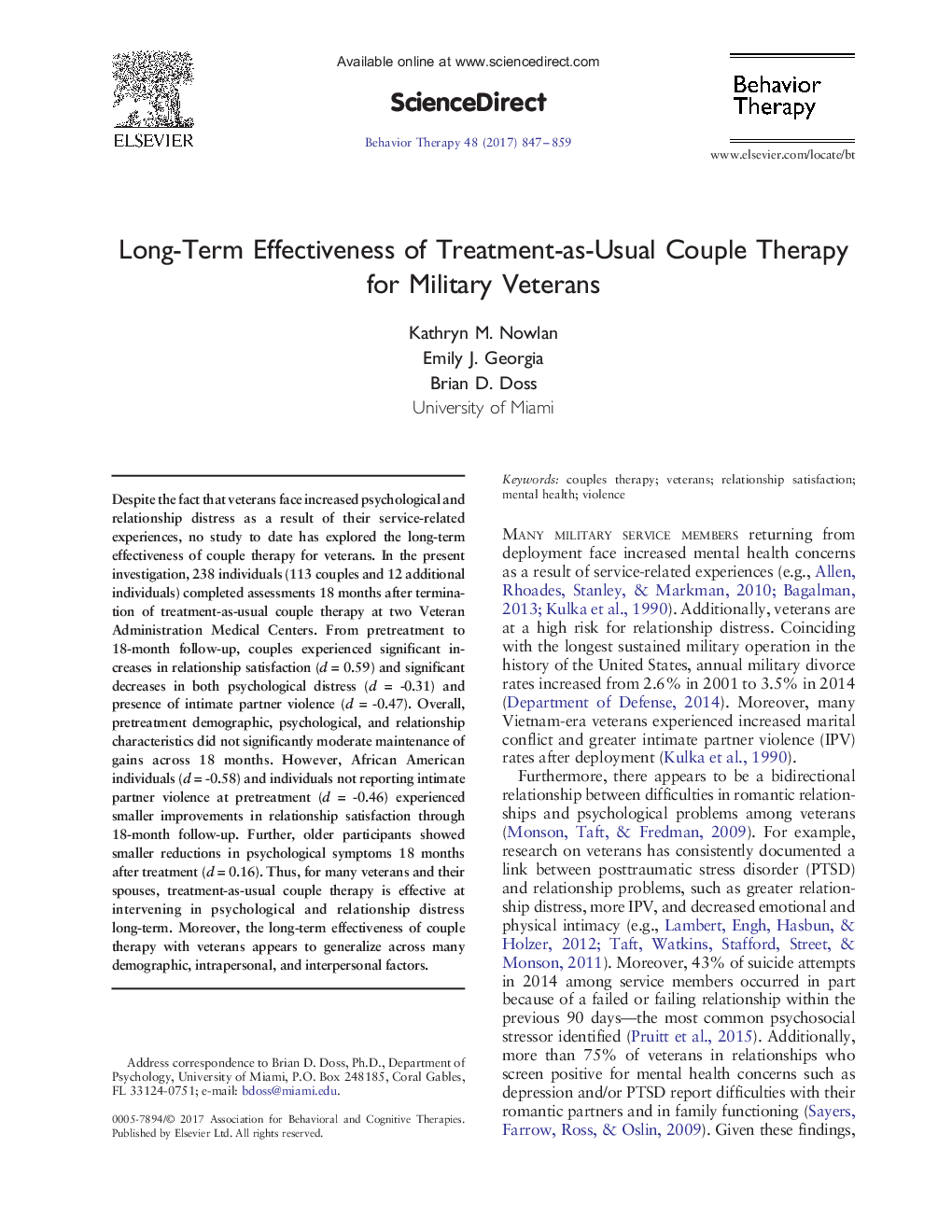| Article ID | Journal | Published Year | Pages | File Type |
|---|---|---|---|---|
| 5037973 | Behavior Therapy | 2017 | 13 Pages |
â¢Treatment-as-usual couple therapy improves veteran couples' relationship distress 18 months after treatment.â¢Through 18-month follow-up, couples report significant reductions in psychological distress and intimate partner violence.â¢African Americans experience smaller gains in relationship satisfaction by 18-month follow-up.â¢Reporting intimate partner violence at baseline predicts greater long-term gains in relationship satisfaction.â¢Older participants show less improvement in psychological distress over long-term follow-up.
Despite the fact that veterans face increased psychological and relationship distress as a result of their service-related experiences, no study to date has explored the long-term effectiveness of couple therapy for veterans. In the present investigation, 238 individuals (113 couples and 12 additional individuals) completed assessments 18 months after termination of treatment-as-usual couple therapy at two Veteran Administration Medical Centers. From pretreatment to 18-month follow-up, couples experienced significant increases in relationship satisfaction (d = 0.59) and significant decreases in both psychological distress (d = -0.31) and presence of intimate partner violence (d = -0.47). Overall, pretreatment demographic, psychological, and relationship characteristics did not significantly moderate maintenance of gains across 18 months. However, African American individuals (d = -0.58) and individuals not reporting intimate partner violence at pretreatment (d = -0.46) experienced smaller improvements in relationship satisfaction through 18-month follow-up. Further, older participants showed smaller reductions in psychological symptoms 18 months after treatment (d = 0.16). Thus, for many veterans and their spouses, treatment-as-usual couple therapy is effective at intervening in psychological and relationship distress long-term. Moreover, the long-term effectiveness of couple therapy with veterans appears to generalize across many demographic, intrapersonal, and interpersonal factors.
